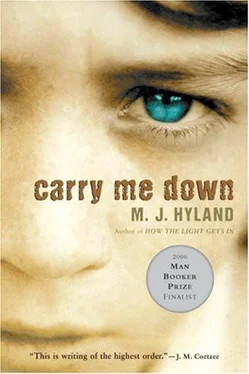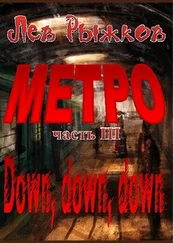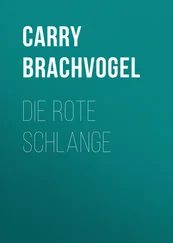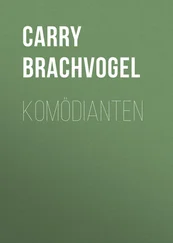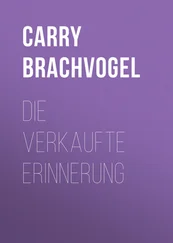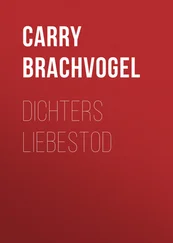My father smiles without showing his teeth. ‘Like a drowned rat,’ he says.
‘How many rats do you know that collect shells?’ my mother asks, as she empties the shells from her coat pocket onto the kitchen table.
My father smiles again and holds one of the shells to his ear. ‘Hello?’ he says. ‘Michael Egan speaking. No, the old bat’s not here. She’s at bingo.’
My mother laughs and seems happy. She tells him the story of the salesman in the dark suit with the flour handprint on his back.
They laugh so much that my mother has to lean against the sink and wipe the tears from her red eyes.
They laugh so much, and for so long, that the joke must have gone beyond what I understand, and I wish I knew what it was. If I ask them what has made them laugh so much, my father would probably lie so that he could keep me from knowing too much about him, too much about what it’s like to be him. My mother would probably tell me most of the reason for the laughing, and leave out the complicated parts. She would lie, I think, to make the talk easier and more pleasant, to stop the talk becoming too serious.
‘It’s not that funny,’ I say. ‘Why are you laughing so much?’
At last my mother stops laughing enough to speak. ‘We’re laughing this much because a long time ago, before you were born, I did a very similar thing to your Uncle Tony before we all went out to a wedding.’
My father shakes his head, his eyes still full of water from laughing. ‘And he deserved it.’
‘Why?’ I ask.
They look at each other before my mother answers. ‘Because he was rude to me and I took offence. You can ask what he said to me till you’re blue in the face, but I won’t tell you.’
I don’t need to know. What’s important is that they’ve been honest; the both of them, honest.
‘I’m going to watch TV now,’ I say and I leave the kitchen with two jam and shortbread biscuits.
An hour later, I go back to the kitchen. It is getting dark and we have just turned on all the lights when my grandmother comes home.
She takes her coat off and drapes it over the back of the chair nearest the range. It’s a new fur coat, brown, with black cuffs. My father looks at her, shakes his head, and leaves. She sits down and eats her soup using pieces of bread to soak it up and she keeps her head so close to the bowl that her hair is splashed with soup.
I can’t stand to watch.
‘I have a toothache,’ I say, and I leave. This lie causes no reaction, perhaps because I am walking when I say it. I’ll make a note of this in The Gol of Seil.
It is Easter Sunday and after mass we all go into the living room. I sit by my grandmother’s feet and laugh when she falls asleep and begins to snore. My mother holds my hand and smiles at me as I open my presents and Easter eggs. I am anxious, as I always am on holidays because of my father’s habit of promising gifts, and forgetting them. No matter what he gives me, it never makes up for the promised gifts never delivered. I keep my father’s Easter card till last; it has one pound Sellotaped inside. ‘Thanks, Da,’ I say.
I smile at my mother. ‘Could we have some of that chocolate cake now?’ I ask.
‘Of course, I’ll finish putting the icing on.’
She leaves and, since Granny is sleeping, I am as good as alone in the room with my father.
I take the card in my hand and turn it over a few times. I make sure my father is watching me. This card, like all the others I can remember, is worn and faded, and has the same picture of a boy playing with his puppy, and the inscription: For a Wonderful Son, This Holy Easter . My Birthday and Christmas Cards are almost identical: For a Wonderful Son, This Birthday or This Holy Communion or This Christmas . There is dirty dust around the clean square where the price sticker would have been.
It occurs to me that all my cards are from the same batch; perhaps from a box of a hundred or more, purchased wholesale when I was born. He might as well give me the same card each year, ask for it back, and re-use it.
I look at him, sitting in his armchair, legs crossed, his short dressing gown loosely tied with the cord that dangles between his hairless knees. I stand directly in front of him so that he must look up at me.
‘When I was six,’ I say, in my surest voice, ‘you must have bought a box of a million identical cards with the same stupid picture on them!’
He looks at me blankly; a complete lack of interest. But I stand my ground and don’t speak to fill the silence. ‘Show me that card,’ he says.
He grabs the card, then shoves it back in my hand. ‘There’s nothing wrong with this card,’ he says. ‘It’s brand new.’
I throw the card into the fire.
He watches the card burn in the orange and pink flames but does not speak. His hands and face are stiff: he is nervous. I wonder whether my mother has told him about my gift. I’ll soon find out.
‘You are cold-blooded and selfish,’ I say. ‘And I’m eleven now. Not two.’
He gets up and we are almost standing chest to chest, but I will not move.
‘How dare you!’ he says, without moving aside. ‘I bought that card yesterday afternoon. That’s a brand new card.’
‘Did you? Did you buy this card yesterday?’
‘What do you mean, did you ?’
‘It looks like all the others you’ve given me, and it’s faded and old-looking. Well, Da?’
He walks towards the door, reaches out for the handle, and misses it. ‘I’m not hanging around for this rubbish.’
‘But did you, Da? Did you really buy the card yesterday?’
His hand finds the door handle. ‘Of course I did.’
‘When did you leave the house? What shop did you go to?’
‘How many times do you want me to repeat myself? I bought that card in Gorey yesterday.’
There it is: he can’t have gone to Gorey yesterday unless he took Granny’s car. But I don’t need to interrogate him about this. He is lying. My ears are hot and my stomach churns.
‘But which shop?’ I ask. ‘And how did you get there? By magic carpet?’
‘You suspicious little bastard,’ he says. ‘Go to your room!’
My grandmother wakes up and seems to know there has been trouble. I stare at my father and refuse to go. I know he would hit me if I was not so big. But I don’t know how to finish what I’ve started.
I go to my bedroom.
I leave my door open, to listen out. I expect to hear my father telling my mother what has happened, but instead there is a brief silence followed by singing: my mother and father and grandmother singing along to one of my father’s favourite records, and probably eating my piece of cake. Nobody comes to get me and I talk to myself and read The Gol of Seil to stop myself from feeling lonely. I lie on my bed for a few minutes but know I must go back or lose this Easter Sunday for good.
I go back into the living room and sit on the rug in front of the fireplace. I look at my father. He sits cross-legged in his armchair with a cup of tea in one hand and a slice of cake in the other.
‘Those African Watutsi can jump very high,’ I say. ‘Why don’t they compete in the high jump at the limpics?’
He does not look at me. ‘It’s Olympics,’ he says to my mother, with a fat grin. ‘O-limpic. Not limpics. Limpics are for spastics.’
My mistake was a deliberate one, but he laughs and turns the joke against me.
‘ Limp -ics! Get it!’
He stamps his foot and they all laugh and I laugh with them because it is one of the worst things to be in a room full of people and not laughing when everybody else is.
‘Good morning, class,’ says Miss Collins. ‘I’d like you all to meet a new pupil.’
Читать дальше
